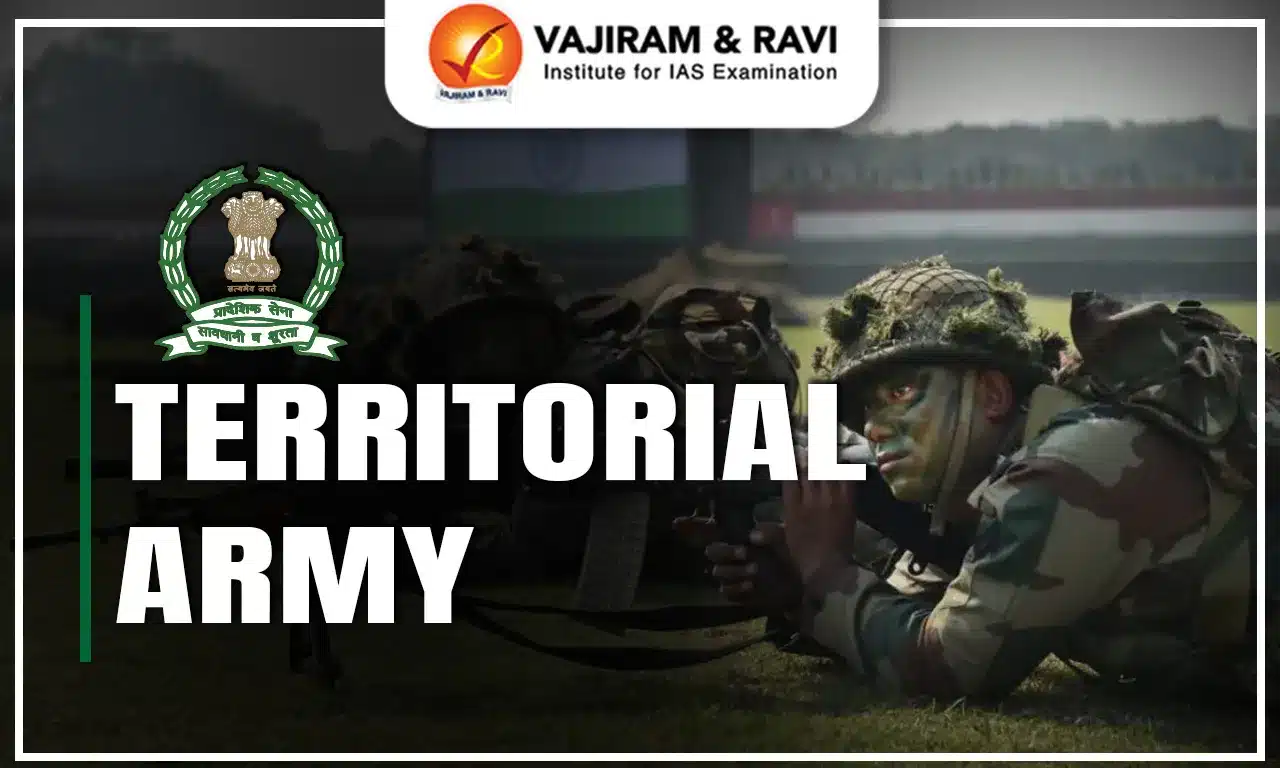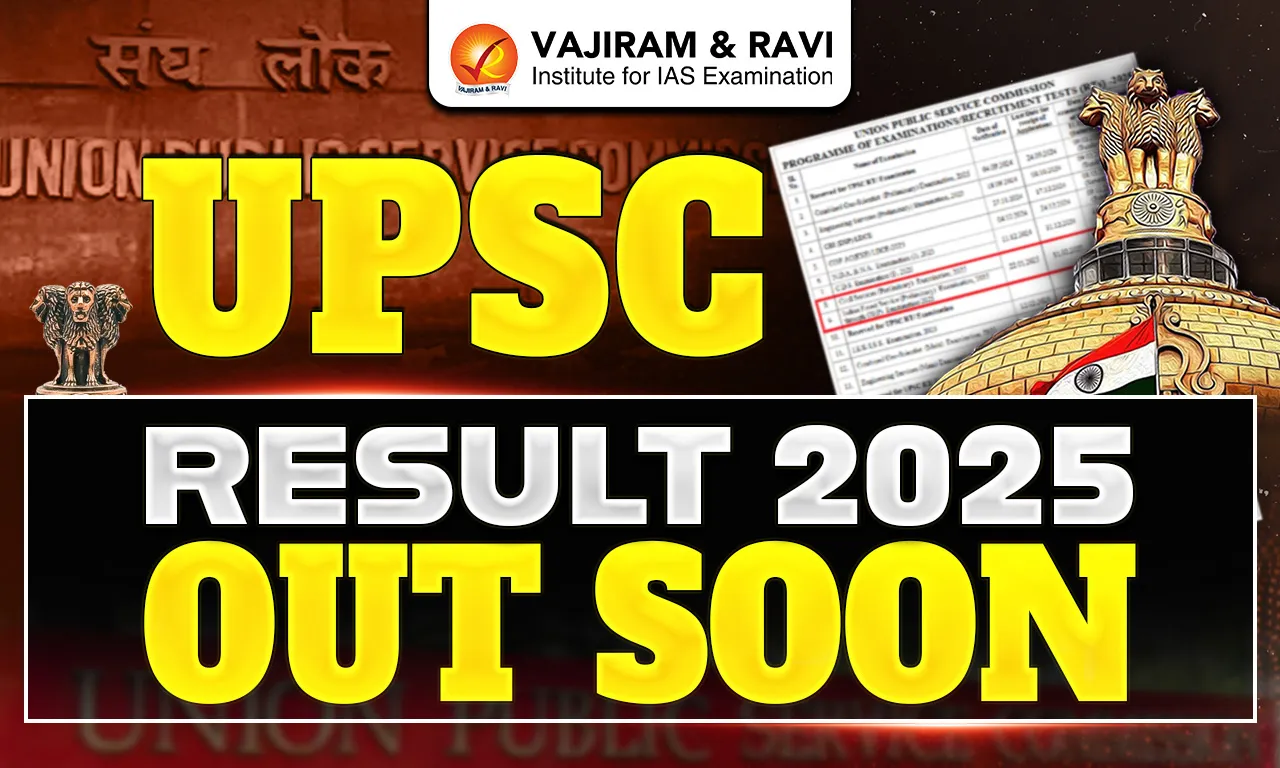The Territorial Army was recently in news due to official notification issued by the Ministry of Defence under Rule 33 of Territorial Army Rule 1948 which authorised the Chief of Army Staff to activate 14 out of 32 Territorial Army infantry battalions. The backdated notification is to take effect from February 2025 and will remain valid for a period of 3 years until 9 February 2028. It empowers the Chief of Army Staff to call every officer and enrolled Territorial Army personnel as required for guard duties or full embodiment to support and supplement regular forces.
What is the Territorial Army?
The Indian Territorial Army (TA) is a part-time voluntary military force that supports and augments the regular Indian Army. Also referred to as ‘Terriers’ or "Secondary Line of Defense," they are civilians who get military training that enables them to serve in uniform without having to give up their primary or civil profession thus bringing patriotism and practical service together.
Also Read: Operation Sindoor
Territorial Army Notification
The Territorial Army Notification by the Ministry of Defence comes amidst rising tensions between Indo-Pak and sustained cross border provocations including Missile and Drone attacks from PoK. The large-scale mobilization of this Secondary Force marks a key step towards operational preparedness for any contingency. Post notification the embodiment of personnel will draw from existing 32 infantry battalions. The selected units will be deployed across all major army commands. The mobilization will be subject to budgetary provisions. For units deployed at ministries other than the Ministry of Defence, the cost will be charged to the respective ministry and not included in the budget allocation of the Ministry of Defence.
Territorial Army Structure
There are approximately 750 personnel in a battalion. The Territorial Army units are under the operational control of the respective Area Headquarters of the Indian Army, and personnel can be embodied (activated) during national emergencies, internal disturbances, or natural disasters.
- Currently Territorial Army has around 50,000 personnel across 65 departmental units (Railways/ IOCL / HPCL / BPCL / ONGC) and non departmental infantry and engineering battalions.
- There are ten Ecological Territorial Army battalions which are sponsored by various state governments. They use technical expertise of the respective State Forest Department (SFD), for afforestation related activities, Soil Conservation, Clean Ganga Mission etc.
Territorial Army Functions
The primary role of Territorial Army is “to relieve the regular army from static duties and assist civil administration in dealing with natural calamities and maintenance of essential services in situations where life of communities is affected or security of the country is threatened and to provide units for the army as and when required.”
Also Read: Missiles of India
Territorial Army History
The Indian Territorial Army has a history dating back centuries. It was during the British rule in India that a need to form a military grade trained volunteer citizen force was felt for the first time by the administration.
The Genesis
The roots of the Territorial Army are traced back to the Revolt of 1857, during which a volunteer force was raised by the britishers .Later British Commander in Chief of the Forces Sir Charles Monroe introduced a bill in the Indian Legislative Council in August 1920 to constitute an Indian Territorial Force and the bill was duly passed. The establishment of Indian Defence Force (IDF) and later the Indian Auxiliary Force (IAF) laid the groundwork for citizen-soldier initiatives.
Post Independence
The Territorial Army was created to allow employed citizens to serve in the defense forces on a part-time basis, providing additional manpower to the regular army without burdening the country’s economy. The Territorial Army Act was passed in 1948 and the Territorial Army was formally inaugurated by the first Indian Governor General Shri C Rajagopalachari on October 9, 1949. Since then October 9 is celebrated as Territorial Army day in honour of the 'Citizens Army', and the first Territorial Army week was celebrated from November 8 to 15, 1952.
Evolution Over the Years
Initially structured around infantry battalions, it began with various types of units such as Infantry Battalion, Air Defence Territorial Army, Medical Regiment, Signal Regiment etc. Later by 1972 these units were disbanded or converted to regular army, except Infantry Battalion. Many prominent individuals, including business leaders and professionals, have proudly served in the Territorial Army, enhancing its prestige.
Territorial Army Achievements
The Territorial Army has played a crucial role in various internal security operations, disaster relief efforts, and wartime support missions. Over the decades, it has evolved into a disciplined and operationally ready force, valued for its flexibility and commitment.
Territorial Army units have been part of operations in 1962 Indo China War and 1965 and 1971 Indo Pak Wars. They have also been instrumental in various flood and earthquake relief missions across India.
. The 'Terriers' were also part of
- Operation Pawan in Sri Lanka (1987)
- Operation Rakshak in Punjab and Jammu and Kashmir (1990)
- Operation Rhino and Operation Bajrang in the north-east region (1990)
Territorial Army Roles and Responsibilities
The Territorial Army supports the Indian Army in various tasks including:
- Relieving regular troops for frontline duties
- Guarding critical infrastructure and supply routes
- Assisting in counter-insurgency operations
- Providing aid during natural disasters
- Participating in ceremonial functions and military parades
Also Read: Dhanush Missile
Territorial Army Eligibility Criteria
To join as a Jawan
Indian Citizen aged between 18-42 years who have passed the Matriculation exam are eligible to join as Jawans. They need to apply as per the procedure mentioned in official recruitment notification released from time to time. The recruitment process includes:
- Written Examination (organized by PIB – Preliminary Interview Board)
- Personal Interview
- Medical Examination
- Training at designated military units
To Join as Civilian
Eligibility-
- Indian citizen aged between 18-42 years
- Graduated from a recognized university P
- Physically and mentally fit
- Gainfuly employed (Central Govt. / State Govt. / Semi Govt. / PSU / Pvt. Sector / Self Employed / Own Business)
Training
The Training modules equip individuals with essential military skills while ensuring minimal disruption to their civilian lives.
The Training module includes:
- Initial training: 30 days in the first year
- Annual training: Minimum 2 months each year
- Post-commission training: At military training academies like OTA (Officers Training Academy), Chennai.
Territorial Army Modern Significance
-
Supporting the Armed Forces
In the current geopolitical environment, the Indian Armed Forces need both strategic depth and resource flexibility. The Territorial Army serves as a force multiplier by ensuring readily available, trained manpower for emergencies, national security threats, and support roles. Many Territorial Army units have been integrated into key operations, guarding sensitive installations, and assisting in border management. Their role in anti-insurgency missions in Jammu & Kashmir and the North-East has been especially noteworthy.
-
Civil-Military Fusion and Nation-Building
The Territorial Army also represents civil-military integration at its best. Members from various walks of life bring unique expertise into defense operations, fostering innovation and efficiency. This fusion helps bridge the gap between the armed forces and the civilian population and promotes patriotism and national unity.
Territorial Army has been instrumental in:
- Providing logistics during COVID-19 relief operations
- Supporting environmental protection efforts in mountainous regions
- Engaging in youth outreach programs to encourage military careers
Territorial Army Defense Strategy
The Indian Territorial Army stands as a proud symbol of citizen participation in national defense. While it may not always be in the spotlight, the TA plays a critical behind-the-scenes role in securing the nation’s peace and sovereignty.
With increasing awareness and reforms, the Territorial Army is poised to expand its role in India’s defense architecture. As India looks to modernize its armed forces, the Territorial Army holds strategic importance to ensure the nation’s security, resilience, and preparedness for any eventualities.
Last updated on March, 2026
→ UPSC Notification 2026 is now out on the official website at upsconline.nic.in.
→ UPSC IFoS Notification 2026 is now out on the official website at upsconline.nic.in.
→ UPSC Calendar 2026 has been released.
→ UPSC Final Result 2025 is expected to be released soon.
→ Check out the latest UPSC Syllabus 2026 here.
→ UPSC Prelims 2026 will be conducted on 24th May, 2026 & UPSC Mains 2026 will be conducted on 21st August 2026.
→ The UPSC Selection Process is of 3 stages-Prelims, Mains and Interview.
→ Prepare effectively with Vajiram & Ravi’s UPSC Prelims Test Series 2026 featuring full-length mock tests, detailed solutions, and performance analysis.
→ Enroll in Vajiram & Ravi’s UPSC Mains Test Series 2026 for structured answer writing practice, expert evaluation, and exam-oriented feedback.
→ Join Vajiram & Ravi’s Best UPSC Mentorship Program for personalized guidance, strategy planning, and one-to-one support from experienced mentors.
→ Check UPSC Marksheet 2024 Here.
→ UPSC Toppers List 2024 is released now. Shakti Dubey is UPSC AIR 1 2024 Topper.
→ Also check Best UPSC Coaching in India
Territorial Army FAQs
Q1. What is Territorial Army?+
Q2. Who are Embodied personnel in the Territorial Army?+
Q3. Who are some famous Territorial Army officers?+
Q4. What are the Major Army commands in the country?+
Q5. Is the Territorial Army full time official service?+













